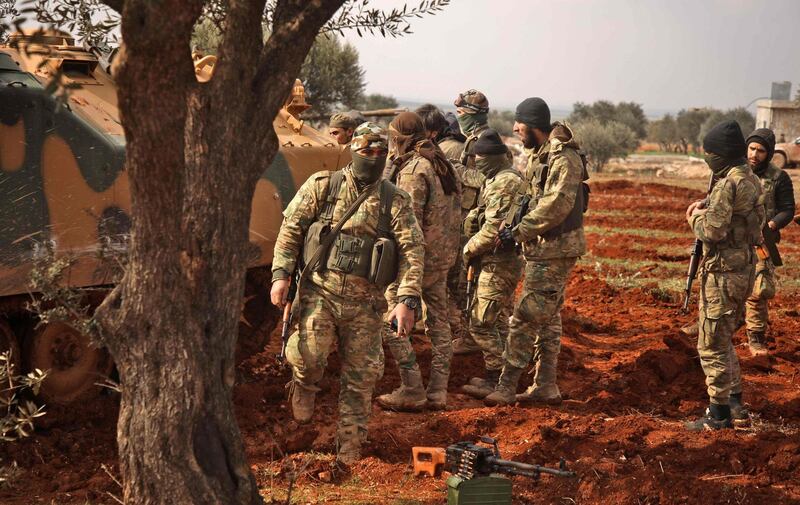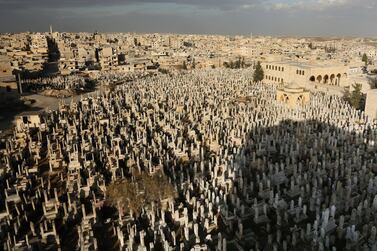In the end, Aleppo fell with a whimper. On Sunday and Monday, forces loyal to Syrian President Bashar Al Assad secured the whole perimeter of the city, seizing towns and villages that had withstood nearly a decade of assaults. The battle for Syria's greatest city and its once industrial capital is officially over.
Aleppo came to symbolise the uprising's fortunes. From near-victory in 2012 and 2013, when rebels swept in from a long-impoverished countryside and laid claim to half the city to the crushing siege, destitution and forced displacement in 2016, and the opposition defeat that heralded the beginning of the end for the armed insurrection against Mr Al Assad.
The Syrian dictator emerged to proclaim victory. While the war was not yet over, he said, the progress in the campaign would “rub their noses in the dirt.”
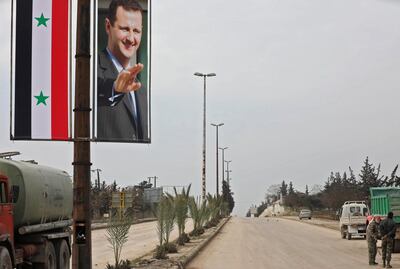
‘Them’ of course encompassing the rebel fighters who suddenly withdrew and abandoned their strongholds, as well as the 40,000 civilians that the United Nations said had picked up their belongings and fled the advancing Assadist shock troops.
There is also little left besides dirt, the relentless aerial bombardment leaving the ghost towns in ruins. Scorched earth is too mild a descriptor, as the president’s forces and their allies raze hospital after another, house after another.
And it is a victory. Mr Al Assad’s conquest of the countryside around Aleppo is symbolic of the general collapse of the rebellion, divided and bereft of international allies, dominated by jihadists who eliminated all their rivals and soldiers loyal to Turkey rather than the revolution. But it is also a practical, strategic victory.
Mr Al Assad now controls the road linking Damascus and Aleppo for the first time in years, and Aleppo’s international airport will likely open in due course.
It adds to the sense of inevitability of the regime’s ultimate triumph, which it hopes will accelerate its return to the community of nations as well as access to badly needed reconstruction funds.
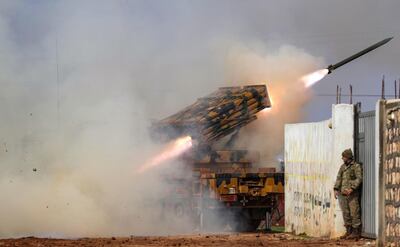
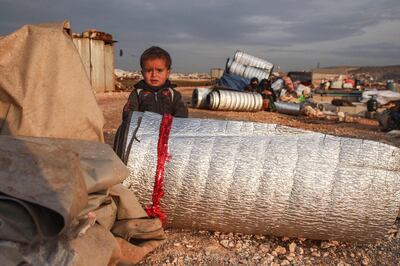
The rapid fall of Aleppo will complicate talks this week between Turkey and Russia, which it is hoped will lead to a stanching of the bloodshed in nearby Idlib. More than 800,000 have fled the fighting there since the beginning of December, taking refuge near the Turkish border in the war's worst humanitarian catastrophe.
The prospect of a massive new influx of refugees into Turkey has alarmed Ankara, which also lost 13 soldiers to Syrian regime shelling, and could destabilise the government. It responded with a massive military build-up that has seen Turkish armor and soldiers enter Syria, threatening a wider confrontation with the regime and its Russian backers.
Turkey’s President Recep Tayyip Erdogan has vowed to prevent the regime’s takeover of Idlib. Mr Al Assad’s victory in Aleppo weakens his hand and pours more fuel onto an unstable tinderbox.
Nobody knows quite what will happen in Idlib. The geopolitical interests are too intertwined, the military situation too volatile. The only thing one can be sure of is that Syrian civilians will pay the price.
I was reminded of this while reading the reactions to the fall of Aleppo by Syrians on social media – outpourings that were raw and heartbroken on one end, and jubilant on the other. Videos and images from the city showed people celebrating the ouster of what they described as jihadists and terrorists, relieved that they would no longer have to contend with random shelling. Some had suffered under thugs claiming revolutionary legitimacy to become war profiteers.
Civilians living in dire poverty, subject to the whims and tortures of Mr Al Assad’s security apparatus, their fortunes so desperate, cheering his victory against supposed terrorists who were themselves living under the relentless terror of airstrikes and barrel bombs.
Those on the other side mourned what they saw as a marker on the end of the road. To those who opposed the regime’s brutal rule, the defeat in Aleppo appeared to seal an equally brutal reality – that Mr Al Assad’s Syria would endure, that their city no longer was, that they could never again live with those who dispossessed them and celebrated their mass murder.
There are no words of consolation to offer them. What happened in Aleppo, and Syria more broadly, is what happens when the whole world turns its back against the aspirations of a people. It is what happens when injustice reigns. The tragedy to supersede all tragedies is that the humiliation can only sow the seeds of future conflict, not enduring peace.
Perhaps one day foes in Syria can learn to live together. For now, it is broken in too many places.
Kareem Shaheen is a former Middle East correspondent based in Canada
